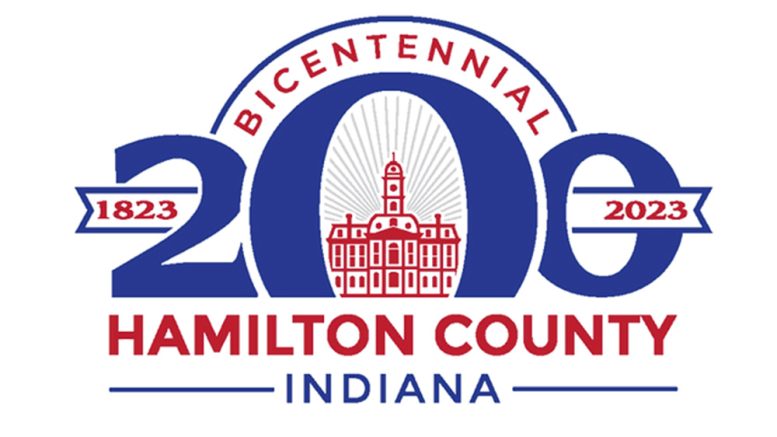Submitted by Hamilton County Bicentennial Commission
Editor’s note: The following collection of stories appears on the Hamilton County Bicentennial website, which you can view at this link. Also included are excerpts from writings by Hamilton County Historian David Heighway which originally appeared in the Hamilton County Business Magazine. Click here to subscribe to the Hamilton County Business Magazine for free!
It’s easy to find Hamilton County residents toasting glasses to health and happiness during the holiday season. Some of us host parties where cocktails are as ubiquitous as sugar cookies. But our community hasn’t always been as civilized or as tolerant of alcohol consumption.

Heighway
Hamilton County Historian David Heighway has written quite a bit about the once-divisive topic. Looking back at events in Westfield and Fishers in particular shed light on just how much things have changed.
November 1881: Fishers’ “Battle of Mudsock” saloon standoff
Page one of the New York Times ran the headline “A Fight Among Ruffians,” and the New Orleans Times-Picayune called the Fishers event that grabbed national attention a “brilliant battle.” Heighway’s research into the so-called “Battle of Mudsock” affirms more about what this newsworthy event was.
“It was even larger than I originally thought. A fistfight between two men in the fall of 1881 snowballed into an explosion of violence that left one person dead, 32 injured and caused the destruction of two buildings,” Heighway reports.
Alcohol-fueled fighting was mostly to blame.
The two saloons where the violence happened were on the south side of what is now 116th Street, one on the east side of the railroad tracks and the other on the west. Edward and Andrew Farrell, brothers who emigrated from Ireland as small children in 1850, owned the western saloon. The eastern saloon was run by Wade Hampton “Hamp” West, a Confederate army deserter.
“Hamp West’s building was in a low, swampy area of land and was supported by pilings sunk into the muck. It was known as the ‘saloon on poles,’” Heighway writes.
The “Battle of Mudsock” happened on Saturday, Nov. 19, 1881. The following is paraphrased from an article by Heighway in the Hamilton County Business Magazine:
West’s saloon: Around noon, Barney Reiner, whose family-owned land in Fishers, and drifter “Dutch Joe” got into a fight that was quickly broken up, but not before people took sides.
Farrell’s saloon: Around 5 p.m., Benjamin Fouch was playing billiards with brothers Daniel and Wesley Lynn while their brother Adam Lynn watched. (A few months prior, Fouch had been forced out of Marion County for threatening a man whom Fouch claimed was paying too much attention to his wife. It was common knowledge that alcohol made this rough character even meaner.) George McCoy entered the Farrell saloon and insulted Adam, presumably about something related to the earlier fight. Fouch then beat up McCoy and threw him out. McCoy came back for more, but this time with Hamp West and another man. Fouch and the Lynn brothers took their aggression out on West, savagely beating him with brass knuckles and pool cues before letting him go.
West’s: After washing up in a pond, West returned to his place of business.
Farrell’s: Fouch and the Lynns finished their game and decided to go to West’s for one more drink – rarely a good idea.
West’s: When Fouch and the Lynns arrived, West told the men he was done fighting and didn’t want any more trouble. But another man drew a knife and slashed Daniel Lynn. The fight escalated to a full-scale brawl. Billiard balls were thrown, and West hit Fouch with a brass beer faucet, killing him.
Farrell’s: Fighting continued at Farrell’s saloon! Shots were exchanged but no one was killed. The only critical blow was to Farrell’s saloon, which burned down that night.
West’s: West’s saloon was closed and later reported destroyed.
Today, Fishers has at least four breweries and 14 restaurants with a full bar or beer and wine.
August 1882: Peace-preaching Westfield women take up hatchets
Across the county, the strong Quaker influence meant there were no saloons to worry about – that is, until the summer of 1882. That’s when William Shaw recognized a business opportunity to serve Westfield’s growing population and travelers passing through on the newly finished Chicago, Indianapolis and Louisville Railroad, later called the Monon.
“Many saloons at this time were rough, board buildings where a plank across two barrels might serve as a bar counter,” Heighway writes, suggesting this might be the kind of crude establishment Shaw built. But the new business owner had procured a proper liquor license from the government.
And because his saloon was conveniently located out of the city limits, city leaders couldn’t technically take action against him. The teetotaling Quaker women, on the other hand, would make their wishes known in a big way.
It started off civilly. A group of women visited the saloon and kindly requested that Shaw close his business and sell them his stock. But when Shaw refused the deal, the women let themselves in and trashed the place, pouring out every drop of liquor they could find.
Shaw was undaunted and soon had his place rebuilt and restocked. “Since the building was little more than a shanty, the cost of decorating was low,” Heighway writes.
About a month later, on Aug. 14, 1882, a total of 40 women – both Quakers and Methodists – marched from the Quaker meetinghouse to Shaw’s place. They bore axes and meant business. As they arrived, Shaw was spotted in a wagon hauling off most of his stock to save them from the women’s blows.
He returned to stand guard outside his saloon, but the group, which included the wives of some of the most respected men in the county, walked right past him and got to work with their blades.
“In the space of a few minutes, the structure was completely demolished. The women then took some last liquor bottles, poured them over the piles of scraps and set fire to them,” Heighway writes.
With his saloon in ashes, Shaw was ready to make a deal. For $25, he agreed to never open another saloon, give up his liquor license and leave town. It was later reported that Shaw had been seen sporting a blue ribbon on his lapel, an accessory worn by members of a temperance campaign.
“Somehow the incident had inspired him to take a pledge not to drink liquor,” says Heighway.
Alcohol sales in Westfield weren’t allowed until the 1970s. Today, Westfield is home to at least five breweries and distilleries and at least 12 restaurants with full bars.
Blue laws regarding alcohol sales on Sundays endured in Indiana
Those events aren’t ancient history. It wasn’t too long ago that fans of Sunday brunch or the Colts who enjoy a drink at home had to plan ahead. During Prohibition times, “blue laws” banned alcohol sales on Sundays in Indiana.
Blue laws were put in place to honor Sunday as a day of worship and enforce moral codes for everyone. To wit, at one time, people in parts of the county couldn’t legally buy ice cream, soda water, candy or gum on Sundays. And there could be no wheeling and dealing at car dealerships or crack of the bat at baseball diamonds, either.
Indiana’s ban on Sunday alcohol sales persisted mostly because of business reasons, not religious ones, until March 4, 2018. That was the day that, with the stroke of his pen, Gov. Eric Holcomb repealed the ban.
In case there was any question about how our current state leaders feel about the importance of access to alcohol, one only has to look back to March 2020, when Gov. Holcomb decided liquor stores were an “essential business.”
Cheers to your good health and happiness this holiday season, no matter how you celebrate!
* * *
In October 2023, Heighway will be joined by Katelyn Coyne, Hamilton East Public Library’s Director of Experiential Learning, to present “A Taste of History: Blind Tiger Bootleggers” at the Fishers library branch. Take a tipple from a Fishers brewery as you hear about teetotalers and bootleggers from Hamilton County during the early 1900s and learn who drove the political forces in Indiana to promote temperance across the state. Click here to sign up for the Hamilton County Bicentennial Commission’s newsletter so you don’t miss this free event!
The Hamilton County Bicentennial is proudly supported by Duke Energy, Hamilton County Board of Commissioners, Hamilton County Tourism Inc., and Hamilton County Historical Society.

